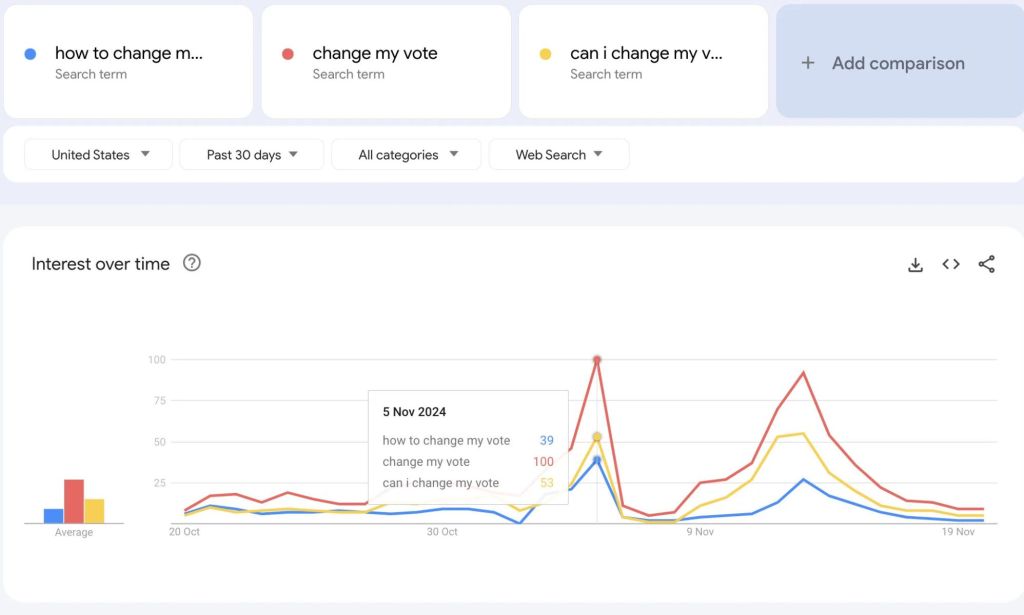Why ‘Trump voting remorse’ search spike might not tell the full story

Donald Trump. (Getty)
A claim that huge number of US voters were showing remorse for voting for Donald Trump has been circulating online, but is it true?
According to Google Trends data shared across the internet in the wake of the presidential election, search queries such as “how to change my vote” and “can I change my vote?” apparently spiked by more than 700 per cent. Influencers across TikTok, X/Twitter, Instagram and other platforms mocked Trump supporters for reaping what they’d sown.
But a report from fact-checking site Snopes has now suggested that, while some voters might have bitten off more than they could chew, the search data wasn’t definitive.

The report, published on Friday (22 November), pointed out that Google Trends doesn’t account for the reasons users are making certain searches.
One user on X/Twitter noted that the query trending could be a case of the “Streisand effect,” a phenomenon where trying to draw attention away from a topic actually makes it more prominent. Once the claim had been made, users might have searched to see if it was trending.
Furthermore, the same search queries also spiked in 2020 following the previous US election, which Trump lost.
Snopes said that because of how Google picks trending topics, the search terms weren’t actually trending at the time of the spike.
“Google Trends, which shows relative search interest over time, can be confused with the Trending Now feature,” the report pointed out. “The latter highlights a curated selection of popular topics and queries in real time, based on absolute search volume and other contextual factors.
“Just because a term sees a spike in Google Trends data doesn’t necessarily mean it appears in the Trending Now section, as the two tools serve different purposes.”
Spikes in search terms are also not indicative of what Snopes described as “absolute search volumes,” meaning that the boom in queries wasn’t indicative of a massive spike in users searching for this query, but rather that the query itself was experiencing a unique level of interest.
Share your thoughts! Let us know in the comments below, and remember to keep the conversation respectful.
How did this story make you feel?

